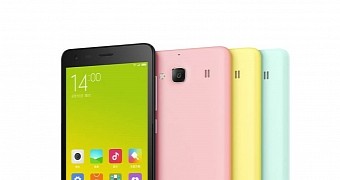Xiaomi has been one of the fastest rising smartphone manufacturers, but the thing is, its business has been conducted mostly in China. Yes, the device maker has ventured outside the borders of the country, but it has stayed close to home, selling its products only in Asia.
There has been talk about Xiaomi branching out into the international market, especially in the US, but the company has been skittish about plunging into this extremely competitive market. But at some point, Xiaomi will make the move. Until then, the company is taking baby steps.
The company has started selling non-phone products like headphones, power banks, fitness trackers in the US and Europe, and this week, we get word from the Wall Street Journal that Xiaomi will start selling its very first phone outside the confines of Asia.
Xiaomi goes to Brazil
It’s not going to attack the US just yet, but Xiaomi is bringing its low-cost Redmi 2 smartphone pretty close by, to Brazil.
The report says that the Redmi 2 will be sold online in the country and won’t be available for pickup from brick-and-mortar stores, even if it seems that most Brazilian phone shoppers will purchase their mobile terminals from physical stores.
The Redmi 2 arrives with a 4.7-inch display with 1280 x 720 pixel resolution. A Qualcomm Snapdragon 410 processor pumps life into the low-cost affair, in combination with 1GB/2GB of RAM and either 8GB or 16GB of internal storage (expandable via microSD card slot up to 32GB).
The phone also features an 8MP primary camera with autofocus and LED flash plus a 2MP secondary camera. The device ships out with Android 4.4 KitKat out of the box with the company’s MIUI ROM on top.
While the Redmi 2 sells for about $110 / €98 in India, in Brazil the low-cost device is going to be offered for a little bit more, meaning $160 / €143. You can expect to see the phone make a debut on the market on July 7.
We should also mention that Xiaomi is not importing Chinese-made devices from the country and selling them into Brazil. No, actually they are assembling the devices right in the South American country.

 14 DAY TRIAL //
14 DAY TRIAL //